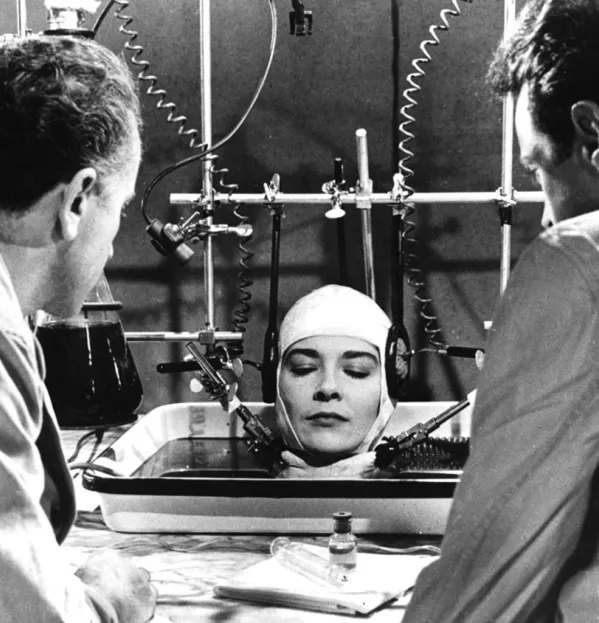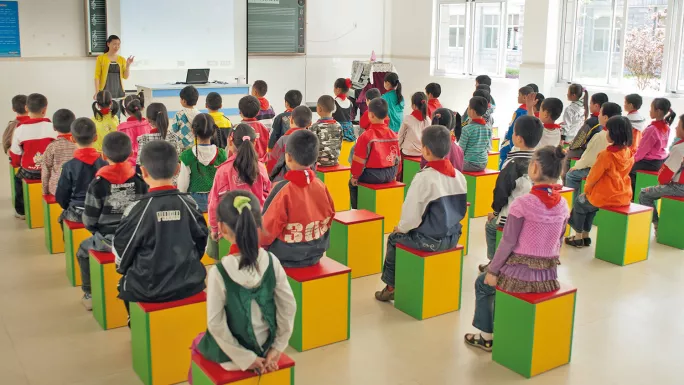Warning: this teaching method may cause some bad side-effects

Education researchers should be forced to highlight the negative “side-effects” of the teaching methods they trial, in the same way as with medical products, according to a top academic.
The change would help teachers to understand how certain methods, such as phonics, might “hurt” children as well as benefit them, said Yong Zhao, professor of education at the University of Kansas.
For example, a reading programme that teaches pupils to quickly sound out words could also have the effect of making them “hate reading forever”, he said. Similarly, a teaching method that improves test scores might also potentially make pupils less creative, he warned.
All too often, Professor Zhao said, education research ignores the fact that “what works may hurt” and focuses exclusively on proving or disproving the effectiveness of an intervention - whether that is a policy, a programme or a teaching method.
He told TESS: “Educational research seems to be exclusively interested in what works, but ignores the possibility that what works may hurt at the same time.”
Educational research seems to be exclusively interested in what works, but ignores the possibility that what works may also hurt
Professor Zhao is calling for governments and organisations awarding education research grants to force educational researchers to report both the intended and unintended consequences of an intervention - just as medical researchers are required to do.
In China, there is a saying that “all medicine is poison at the same time”, says Professor Zhao. The same can be said for interventions in education, from phonics programmes to policies around parental choice of schools, he added.
Professor Zhao said: “When you buy a medical product, you are given information about both its effects and side effects. But such practice does not exist in education.”
Be your best critic
Highlighting the side effects of educational interventions would also help to curb polarised ideological debates, he added. Professor Zhao gave the example of the long battles raging in the US about the best way to teach maths and reading. Often both sides of a debate are right and wrong at the same time, he said, with one side only looking at the effects and the other at the side effects.
He continued: “If you work in education long enough, you come to see the pendulum swing: we try a new method, discover the side effects, the side effects take over and we try something new and run into the same problem. Then we maybe go back to the old way, having forgotten the side effects.

“So things go out of fashion and then they come back. But maybe if we combine them, we can push for a new way that maximises the positive effects and minimises the negative. That would be progress.”
Professor Zhao spoke to TESS after outlining his ideas in an article, “What works may hurt: Side effects in education”, in the Journal of Educational Change.
The head of the University of Edinburgh’s school of education, Rowena Arshad, agreed with Professor Zhao that education researchers had to be more critical of their own work.
Dr Arshad said: “University research should be about intellectual integrity, so any piece of research should be saying ‘here are some findings’, but equally ‘here are some concerns’ or ‘here are the gaps’ or ‘here is the way we would do it differently if we had another chance’.
“If there are health warnings or caveats, they should be in there; we should be much more critical and reflective in our work.”
Educational researchers could at times be guilty of being blind to the downsides of the interventions they were evaluating, said Walter Humes, an honorary professor at the University of Stirling, who has worked in educational research for nearly 40 years.
We should be much more critical and reflective in our work
However, he also pointed out that it could sometimes take years for unintended consequences to emerge.
Professor Humes said: “A lot of educational research operates on a system of ‘let’s try this and evaluate it’, and from the very beginning the researchers, unless they are able to detach themselves from the project, are disposed to look for success; the problem is, sometimes they are blind to the downsides.”
He added: “That is understandable but not commendable.”
However, he believed it was unlikely that the bodies awarding research grants would encourage researchers to see side effects, as they were often under pressure to deliver results. Instead he called on educational researchers to “be braver, challenging government assumptions about what research can provide”.
You need a Tes subscription to read this article
Subscribe now to read this article and get other subscriber-only content:
- Unlimited access to all Tes magazine content
- Exclusive subscriber-only stories
- Award-winning email newsletters
Already a subscriber? Log in
You need a subscription to read this article
Subscribe now to read this article and get other subscriber-only content, including:
- Unlimited access to all Tes magazine content
- Exclusive subscriber-only stories
- Award-winning email newsletters